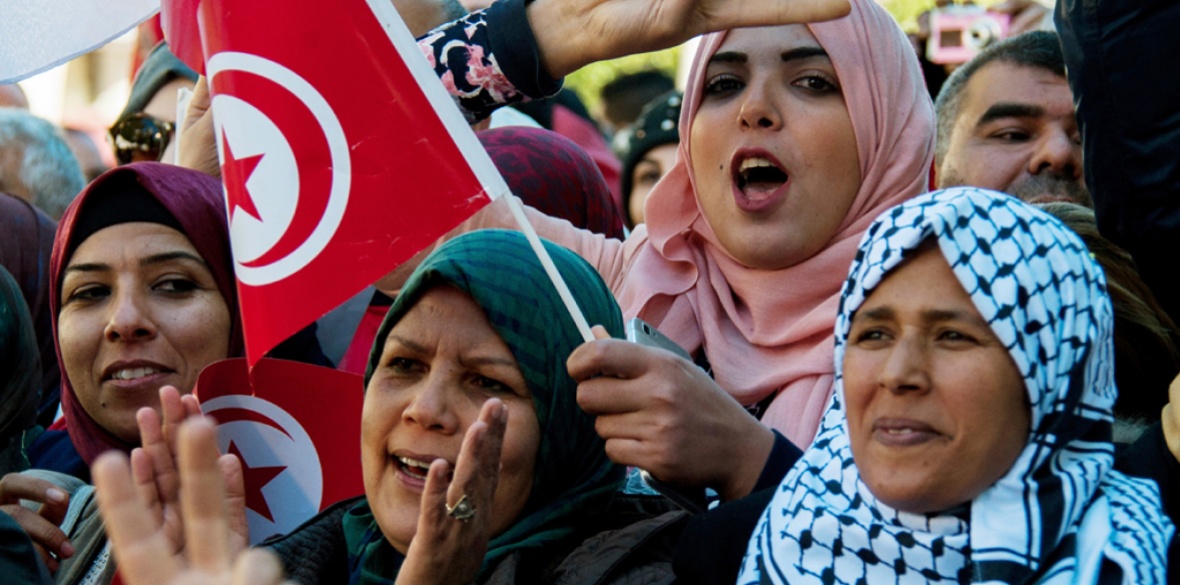This is the last article you can read this month
You can read more article this month
You can read more articles this month
Sorry your limit is up for this month
Reset on:
Please help support the Morning Star by subscribing here
PROTESTS continued in Tunisia today on the seventh anniversary of the “Arab Spring,” despite the government’s offer of relief for the poorest.
The week-long protests over legislation that has led to soaring prices of basic goods mirrored those that ousted former president Zine el-Abidine Ben Ali on January 14 2011.
The International Monetary Fund (IMF), which lent the country £2.2 billion in 2015, ordered Tunis last month to take "urgent action" and "decisive measures" to reduce its spending deficit.
At a cabinet meeting last night, Prime Minister Youssef Chahed allocated 100 million dinars (£29 million) for a 20 per cent increase in benefits to some 250,000 of the poorest families.
Another 70 million dinars (£20m) was earmarked for increases in pensions and expanded healthcare for the unemployed, Social Affairs Minister Mohammed Trabelsi announced.
But the Popular Front, a coalition of left-wing parties, called the measures "laughable" in a statement today and urged protests "until suspension of the measures in the finance law that affect citizens' buying power."
And Democratic Movement leader Nejib Chebbi said: “Government actions are just painkillers and cannot deal with the situation,” adding that “the Tunisian ship will sink” without permanent solutions.
President Beji Caid Essebsi visited a housing estate outside Tunis today that had been a site of unrest.
"Tunisians are capable of overcoming current difficulties," he said last night, calling on citizens "for a bit of patience and understanding."
"I've been out of work for seven years and see nothing ahead, no flicker of hope for a better future," said Ali Ben Mahmoud, a university graduate from Tunis who took part in the initial demonstration last week, organised by the group Fest Nestanaou (What Are We Waiting For).
The so-called Arab Spring began with mass protests following the suicide of street trader Mohamed Bouazizi on December 17 2010 after police harassed him and confiscated his wares.
But the wave of uprisings was soon hijacked by imperialist powers, which engineered the 2011 coup in Libya and the ongoing war in Syria, as well as events leading to the Saudi-led invasion of Yemen.











